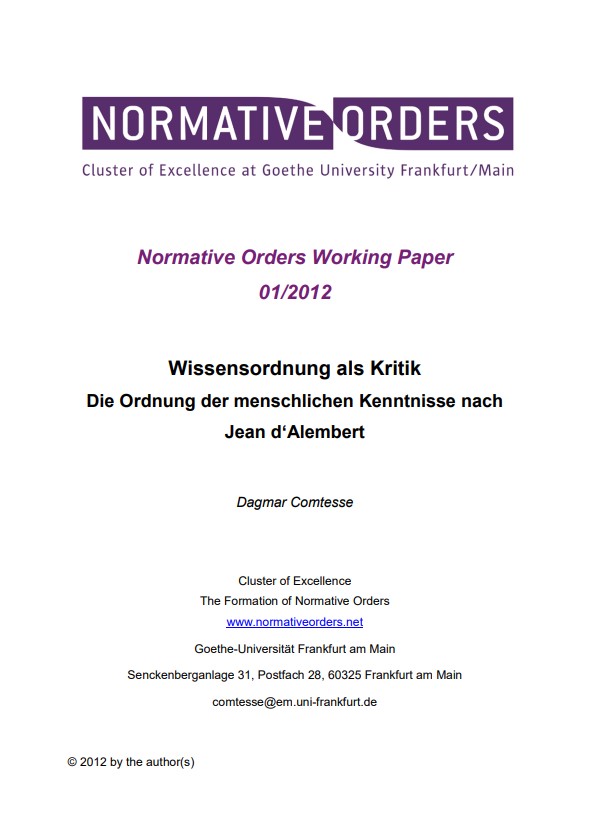The order of knowledge as critique. The order of human knowledge according to Jean d’Alembert
The article elaborates on d’Alembert’s intention to discredit the dogmatism of religious belief as well as the authoritarianism of the estate-based society through a mathematically based order of knowledge that claims universal validity, thus destabilizing the existing power relations. The encyclopaedia’s universalist order of knowledge is ultimately also intended to establish a new normative order. The role of the encyclopedists as enlighteners of the unenlightened society is part of the universalist order of knowledge. Although the claimed emancipatory effect of encyclopaedic universalism can be understood in the historical context of dogmatism and despotism, the question arises as to what extent this universalist claim actually satisfies a “critical attitude”, as defined by Foucault on the basis of Kant’s essay “What is Enlightenment?”, or whether it remains merely a “critique of knowledge”. The question of attitude points to d’Alembert’s ambivalent relationship to the political authorities of his time.


